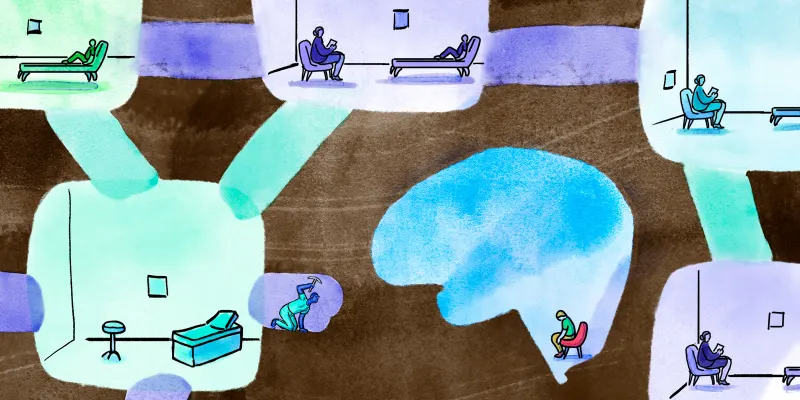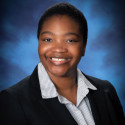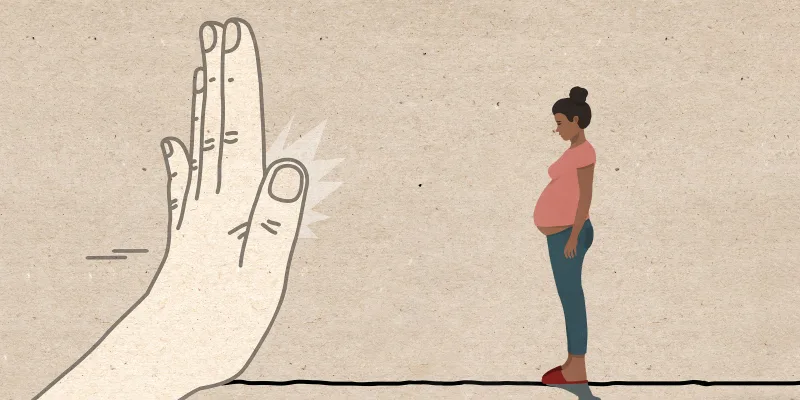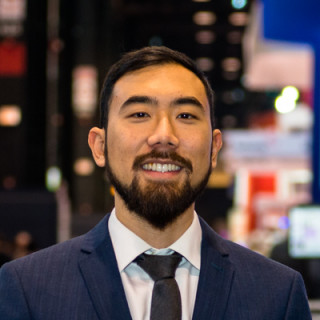With the Super Bowl coming up this Sunday, Doximity reached out to Dr. Neal ElAttrache, head team physician for the Los Angeles Rams, to talk about the unique experience of being responsible for the health and safety of some of the best athletes in the country. The gist? Being a team physician is a “seven days per week job,” but one that can be so rewarding that sometimes it doesn’t feel quite like a job at all.
Dr. ElAttrache’s schedule is busy from Day One of the NFL preseason. “We know when to predict and anticipate when certain types of injuries are more likely to occur. Soft tissue injuries like hamstring strains tend to happen toward the beginning of [preseason] camp — certainly when the weather's warm, people are dehydrated or not as well-conditioned.”
Once the season begins, the medical team performs diagnostic tests and creates treatment plans on practice days, game days, and even players’ days off. “The season is pretty much seven days a week for [us]. You’re going from the beginning of August to whenever the season ends. And in our case, we've been fortunate enough to go pretty deep into the postseason.”
Working with a multilayered team including trainers, physical therapists, sports scientists, nutritionists, and more, Dr. ElAttrache says that he continues to learn every day. “What is eye-opening is the amount of advancement and the amount of learning that one can do when you work in this kind of environment, when it's such a dedicated team of professionals. And if you take the time and learn about somebody else's area of expertise it makes you so much better at doing what you do.”
Dr. ElAttrache shared that the head trainer, Reggie Scott, comes into the OR with him. “I like having him there because he can see exactly what the injury is and exactly what I have to do to fix it. We can do some things in the operating room to see how a certain repair is going to perform or behave depending on motion and what we can do safely and how we can sort of accelerate somebody's rehab.” This collaboration allows them to push the envelope to get athletes back on the field promptly.
The biggest hurdle Dr. ElAttrache faces, he said, is fighting against the artificial clock of contracts, games, and timing of injuries. “I think that the most successful people are able to, within reason, effectively take care of a person’s injury and push the edge of what is safe to do according to this artificial schedule.” He also admits that difficulties can arise when working with such a large medical team. “No one person can do what it takes to give these players what they deserve. Maintaining a cohesive, caregiving team is also a challenge because you have to work with a lot of people.” The medical team may have a lot in common with what is required of the players on the field. “Trust and mutual respect of your colleagues at work is probably universal as far as what's necessary for the end work product to be what it needs to be,” said Dr. ElAttrache.
Despite these challenges, being able to see these players succeed on the field after treatment does more than just keep Dr. ElAttrache going. “It gives me such a reward that it’s not even like a job. It’s an amazing feeling. I don’t care if it is a professional athlete or just another patient who no one’s gonna read about or know about. For one human being to put themselves in your care, it’s such an intimate, sort of sacred, thing that they’re asking you to do. When you consider that, what a privilege it is to be able to have somebody ask you to take care of them, and then they turn out to be able to be successful in whatever it was that you did, especially if it means their livelihood or something that really fulfills them, it really supersedes pretty much any other reward you can get.”
When it comes to the big game on Sunday, Dr. ElAttrache said preparations are no different: “It’s probably most important to do exactly what you’ve been doing, to stay on your routine, and to not get distracted by everything else that’s going on. If you’ve hit on a good formula that works, then you don’t want to change that at all. And I think that we have a pretty good formula that works.”
Part of the NFL formula of keeping the players safe these past few years has been protecting them from COVID-19. Dr. ElAttrache is proud of the NFL response: “When I look at how our medical director, Allen Sills, our commissioner's office, and the players' association have handled [COVID-19], I think that it is really a great example of how to take evolving science, apply it to the population that you're responsible for, and be able to move on with life and continue working.” NFL leadership, according to Dr. ElAttrache, has done its best to keep the schedule as regular as possible after an irregular 2020 season. Maintaining regularity is key: Dr. ElAttrache noted, “It’s interesting … when these routines are disrupted, for whatever reason, [that] does reflect in an increase in injuries.”
As far as new research goes, Dr. ElAttrache is also closely watching biologics and their potential to drastically accelerate the healing process. “There are big advances going on with neurosciences and with concussions. I love learning more about that, but what I have my hands on is being able to get tissue to heal better and quicker. With [athletes] like Cam Akers or Joe Burrow, I do a little bit of sewing in a little bit of work in the operating room. After that, there's months and months of hard work on the [athletes’] part. Some of that can be manipulated in a safe way using some of the newer things that we know about biology and some of the newer technology that we have.”
Combining technologic and biological advances has revolutionized the sport already, attributing to Cam Akers’ remarkable Achilles tendon rupture recovery. “I don't think anybody would've anticipated that somebody who tears their Achilles tendon at the beginning of a season could be back before the end of the regular season,” said Dr. ElAttrache.
Whether you’re rooting for the Rams or the Bengals this Super Bowl, for Dr. ElAttrache, it will be just on another day on the job, learning. “The advancements we make here are not just for entertainment and sport. The things we are able to learn here translate into taking care of all of our patients. There are 50- and 60-year old men and ladies that are benefiting from the things that we're able to do and test and see from the results on these guys that are playing for our entertainment on Sunday.”
Would you want to care for a high-interest patient population? Share your thoughts below.
Image by wizh.art / shutterstock







